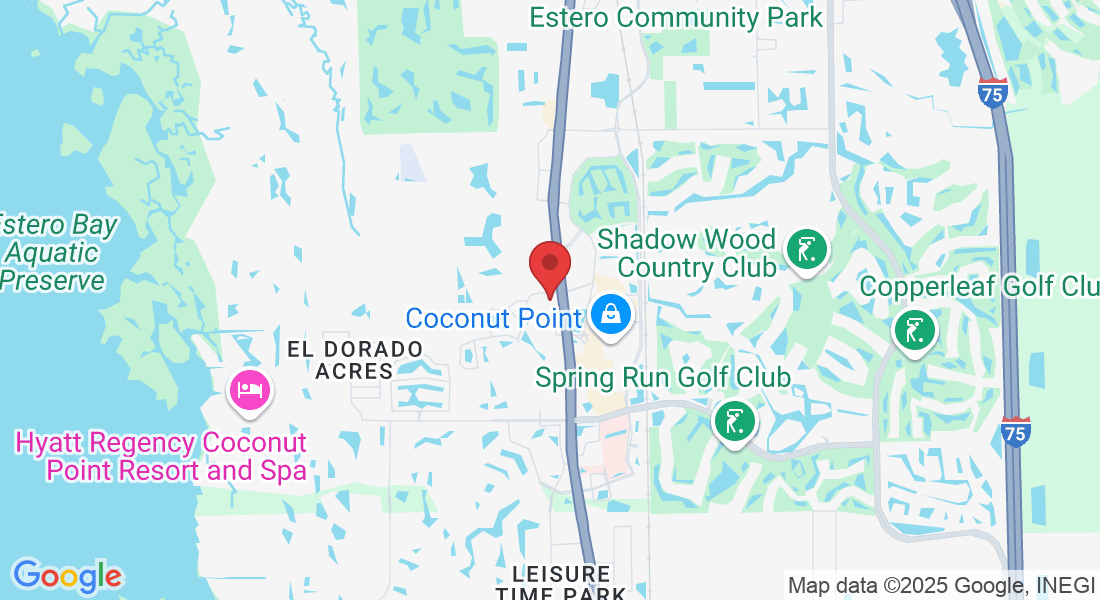Redefining Memory Care In Estero Florida
Choosing the right memory care community for a loved one is a deeply personal decision. At Gulf Coast Memory Care, conveniently located next to Coconut Point Shopping Center in Estero, Florida, we've created a haven of tranquility where residents can experience a luxurious and comfortable lifestyle. Let us help you make this important decision with confidence.
"Choose us with peace of mind; if within 90 days your heart pulls you elsewhere, we'll ensure a smooth transition and give your community fee back to help secure another place."
Your family's freedom to thrive is our top priority.

Understanding The Benefits Of Memory Care
Hear From Jen
We believe that exceptional care begins with open, honest, and ongoing communication. Families have direct access to our leadership and caregivers, including personal cell numbers, because staying informed should never be a struggle.
Every resident also receives a personalized care plan tailored to their needs, so families always stay connected.
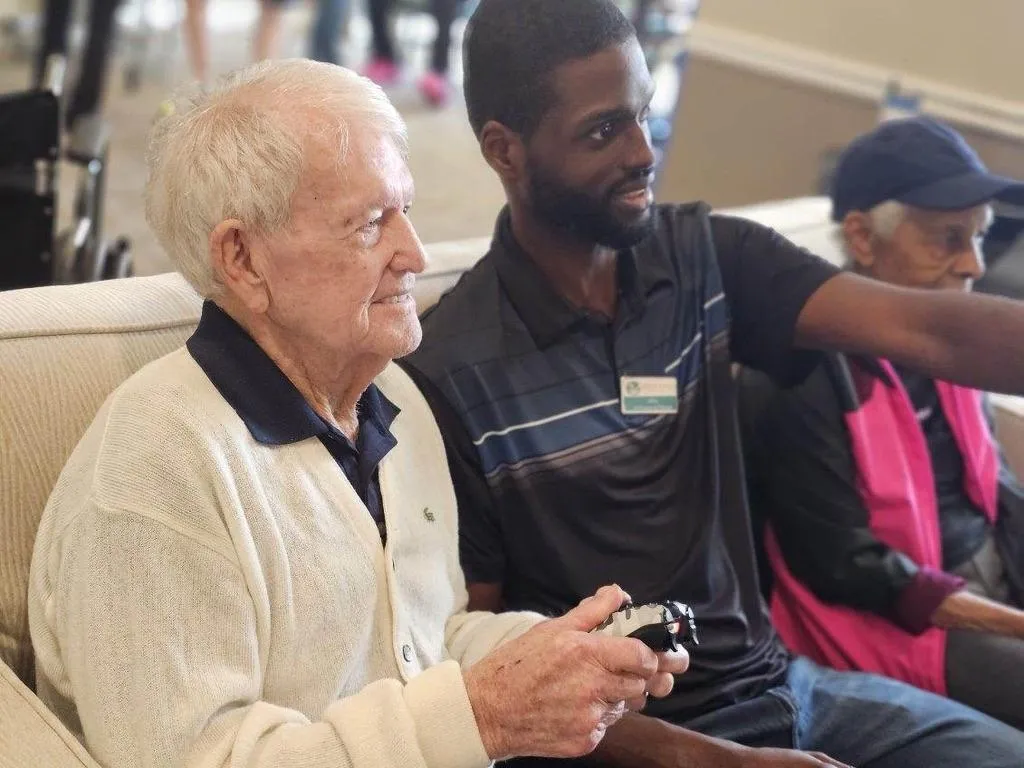
Is It The Right Time For Memory Care?
Understanding that memory care is not a one-size-fits-all solution, we prioritize personalized care plans that adapt to each individual’s progression.
Learn more about senior care and get personalized results in this quick 5 minute survey.

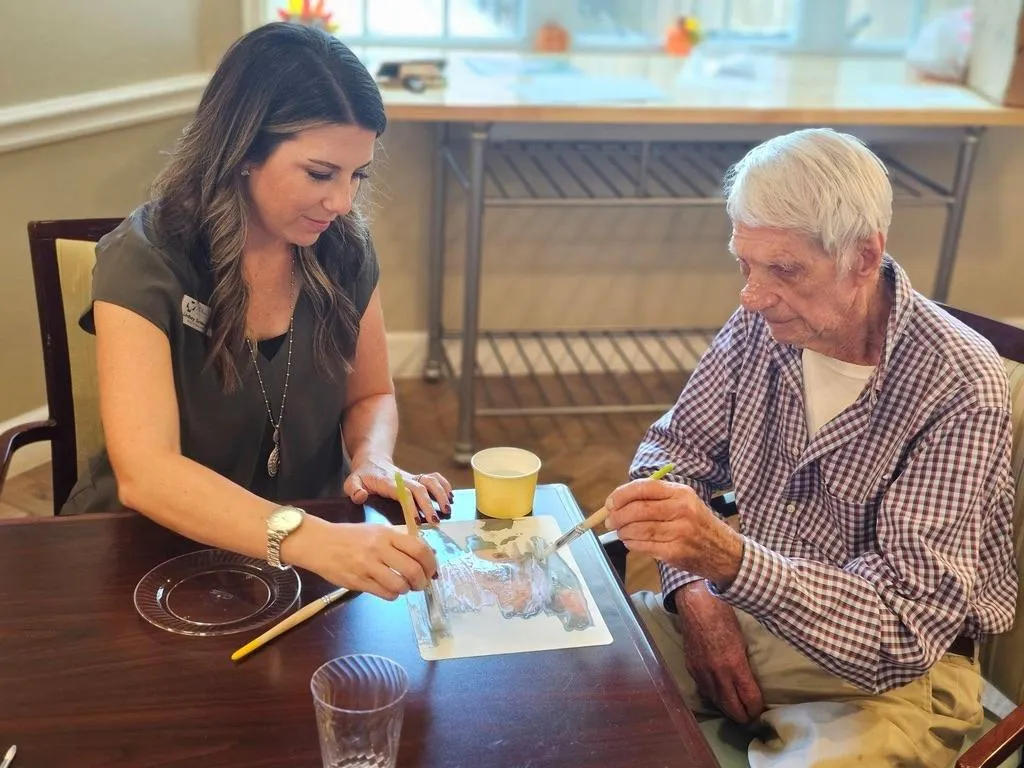
A Community For Alzheimer’s & Dementia Care
Families seeking Alzheimer’s and dementia support in Estero, Florida, can rely on our compassionate team for a community that truly cares.
Through ongoing training in the latest memory care practices and a commitment to safety, Gulf Coast Memory Care offers peace of mind for families and the highest standard of care for residents.
Love From Our Families


My mom moved into her new home a few weeks ago. I was able to visit with her this week while being in Florida and my gosh, I know she is right where she needs to be. Huge shoutout to Jerry, Diana, Paula, Kathy and Apryl. You are real life angels. The energy you bring is above and beyond. To see how you interact with not only my mom, but all the residents, it truly warms my heart. While it is heartbreaking to see my mom battle Alzheimer's, I know she is in the perfect place. She is safe and receiving the care she needs. <3 The place is clean, accommodating and most importantly feels like home. I love that there is a schedule and many activities for the residents to participate in. My mom has loved the painting and coloring
- Bill & Bonny B


Upon entering this beautiful community, I was deeply impressed by the exceptional level of care and compassion demonstrated by all the caregivers. Every member of the team, from maintenance staff to the executive director, significantly contributes to the residents' quality of life. The interior courtyards offer a safe and beautiful outdoor escape for the residents, while the dining area is both elegant and spacious. GCMC stands out as one of the premier memory care centers I have ever visited.
- Bill & Bonny B


Exceptional dedication. Genuine care 24/7, everyone is doing a great job, from Management to the care team. Jerry and Diana are conducting the business, but you can see them walking the hallway and chatting with the residents, literally knowing everyone. There is an engine who works behind the scenes to have the day and night activity running smoothly. Family feeling, warmth, and genuine care, overall, 5 stars. Residents are never alone, there is always a pair of eyes to watch and hands ready to help as needed, but all is done in a certain way, so our loved ones don’t feel any loss of their independence. Beautifully done. The activities are not just lines on paper, everyone is involved. Food is first class.
- Bill & Bonny B
Our Senior Care Amenities
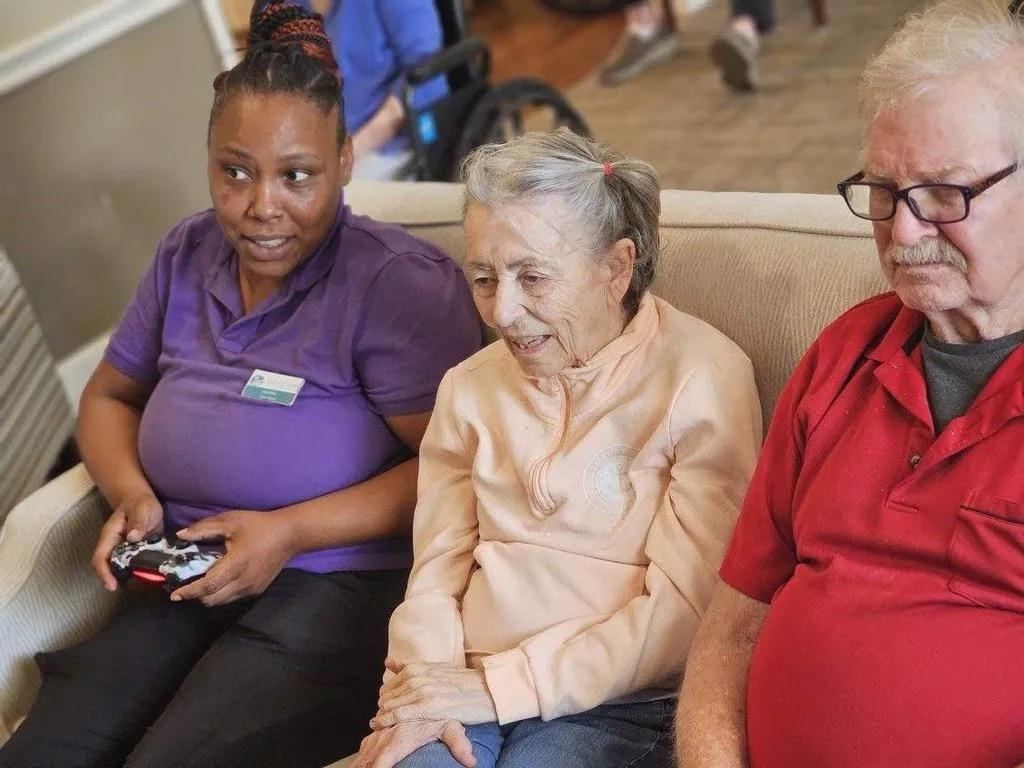
One-site beauty salon and barbershop
Personalized, chef-prepared meals
Customized activity programs
Craft and hobby room
Family living room
Full Library
Abundant natural light to minimize sundowning
Located next to Coconut Point Shopping Center
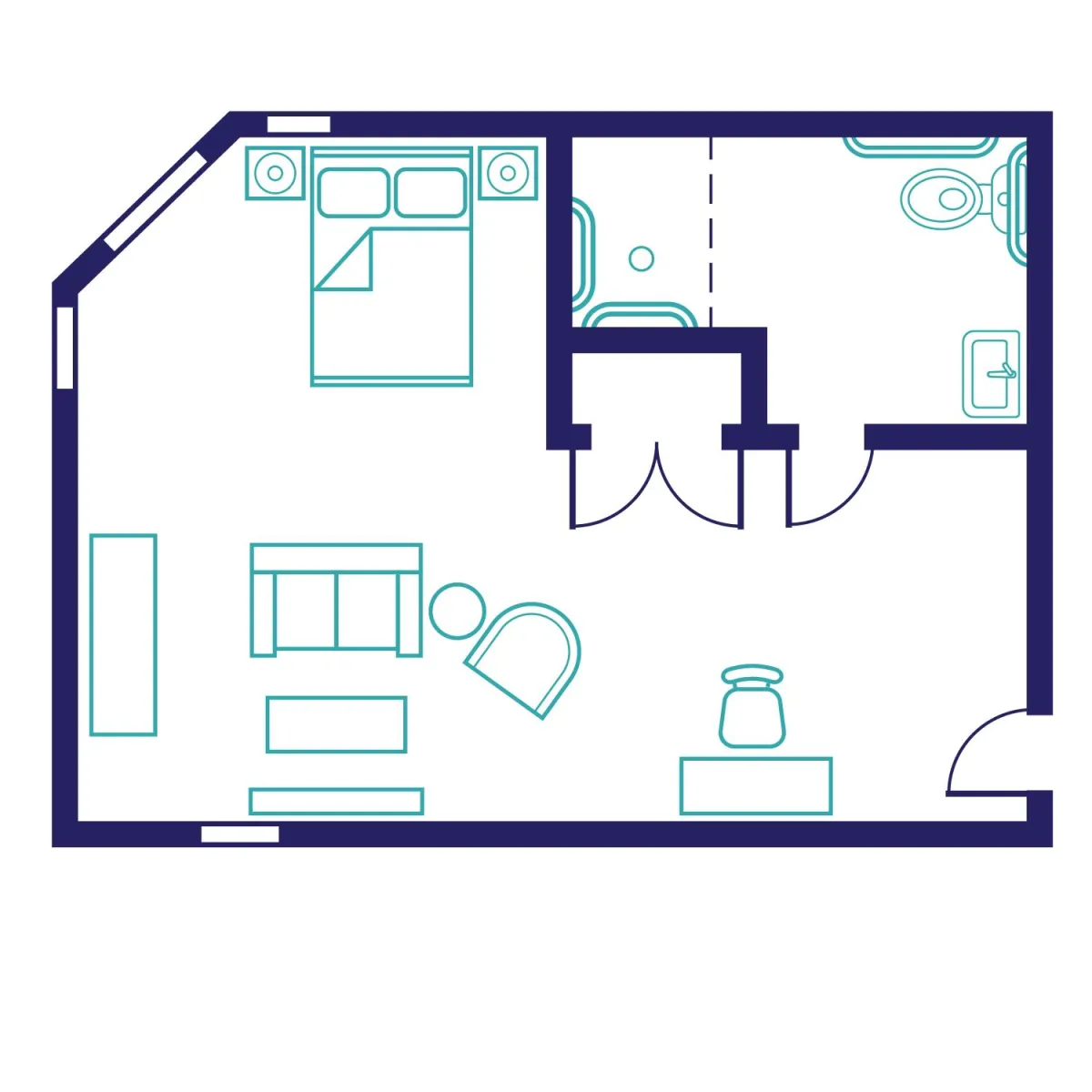
The Edison Suite
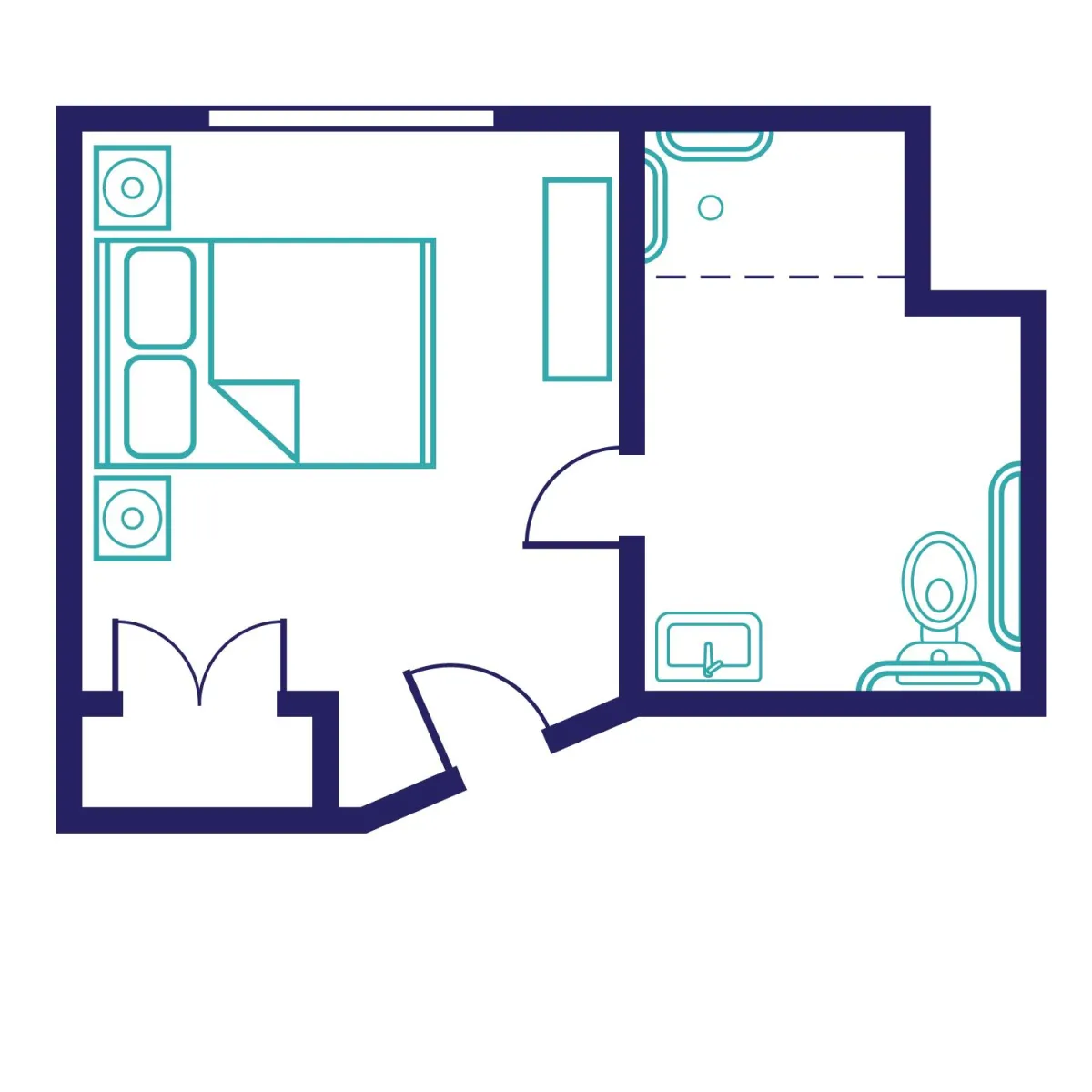
The Magnolia Suite
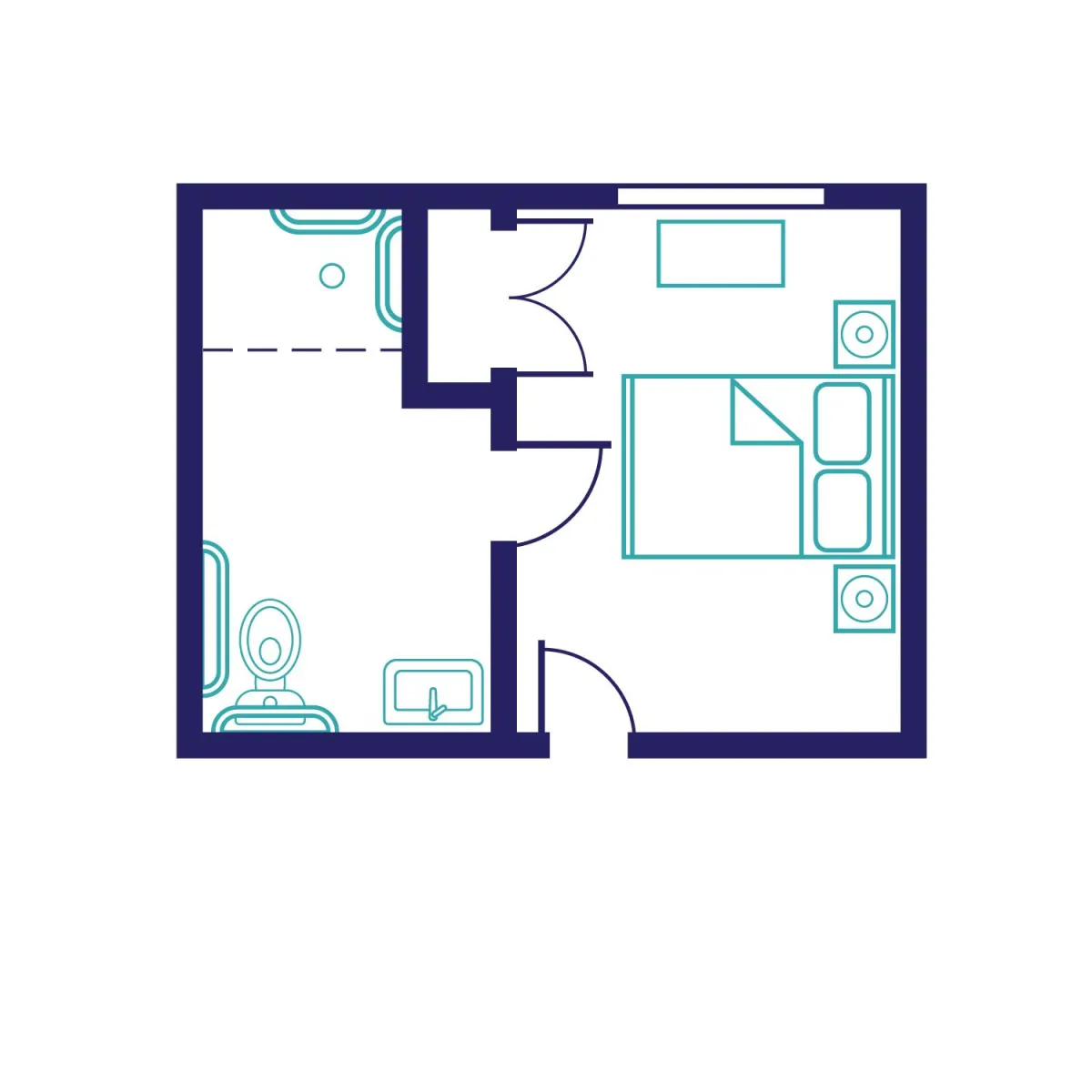
The Sugarberry Suite
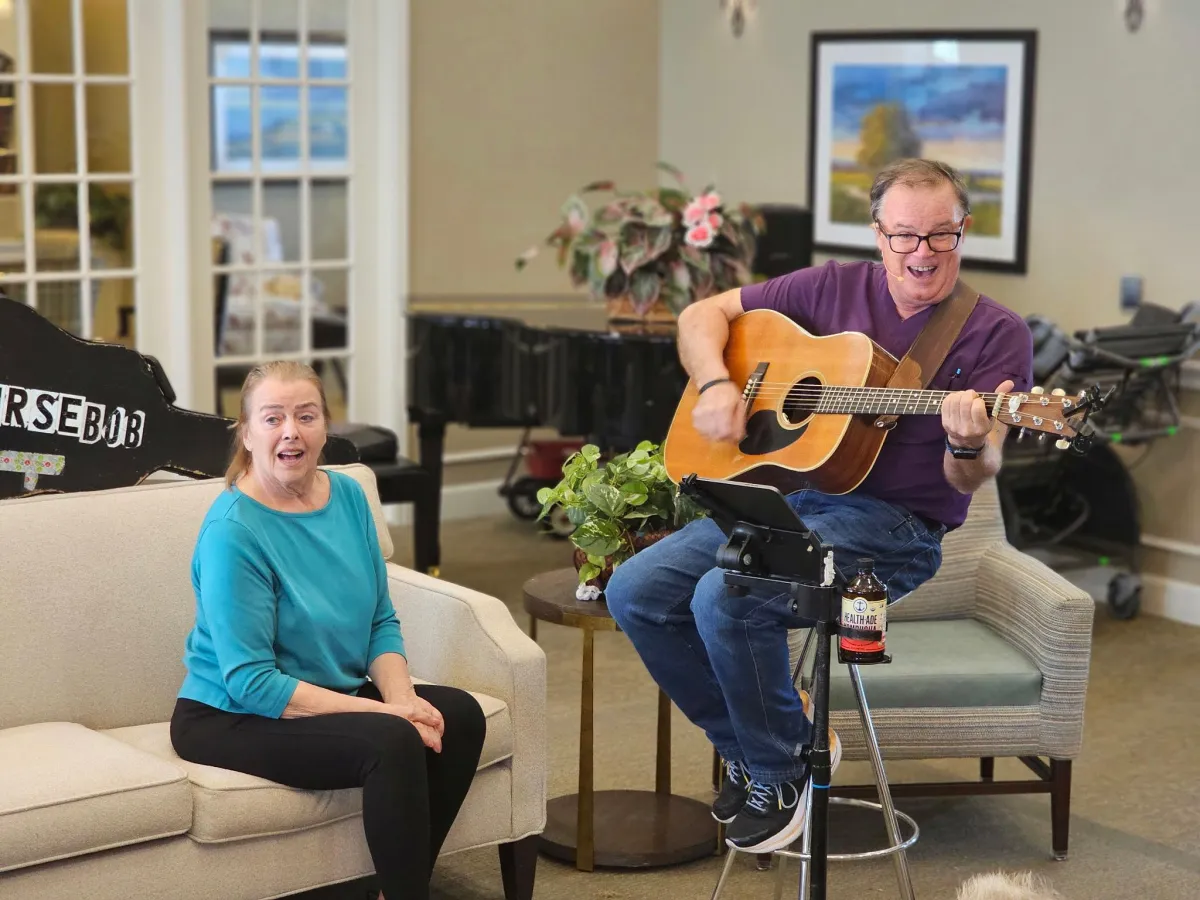
Engaging Residents With Meaningful Social Connections
We also prioritize activities that nurture both physical and mental wellness, from gentle exercise routines to social events that create a sense of community among residents. These carefully crafted programs are designed to boost mood, reduce anxiety, and encourage meaningful interactions, all of which contribute to a fulfilling lifestyle for those facing memory challenges.
Our Commitment To You
Our commitment extends to providing families with guidance and resources to understand memory loss and navigate the journey with confidence. Whether it’s through educational workshops or one-on-one consultations, we’re here to support families every step of the way, ensuring they feel connected and informed about their loved one’s care journey.
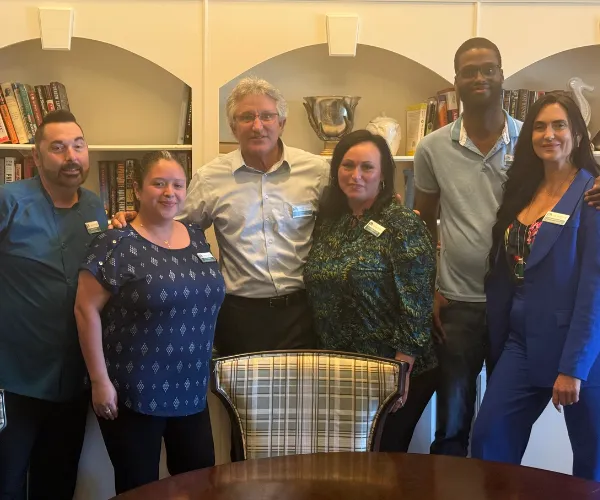
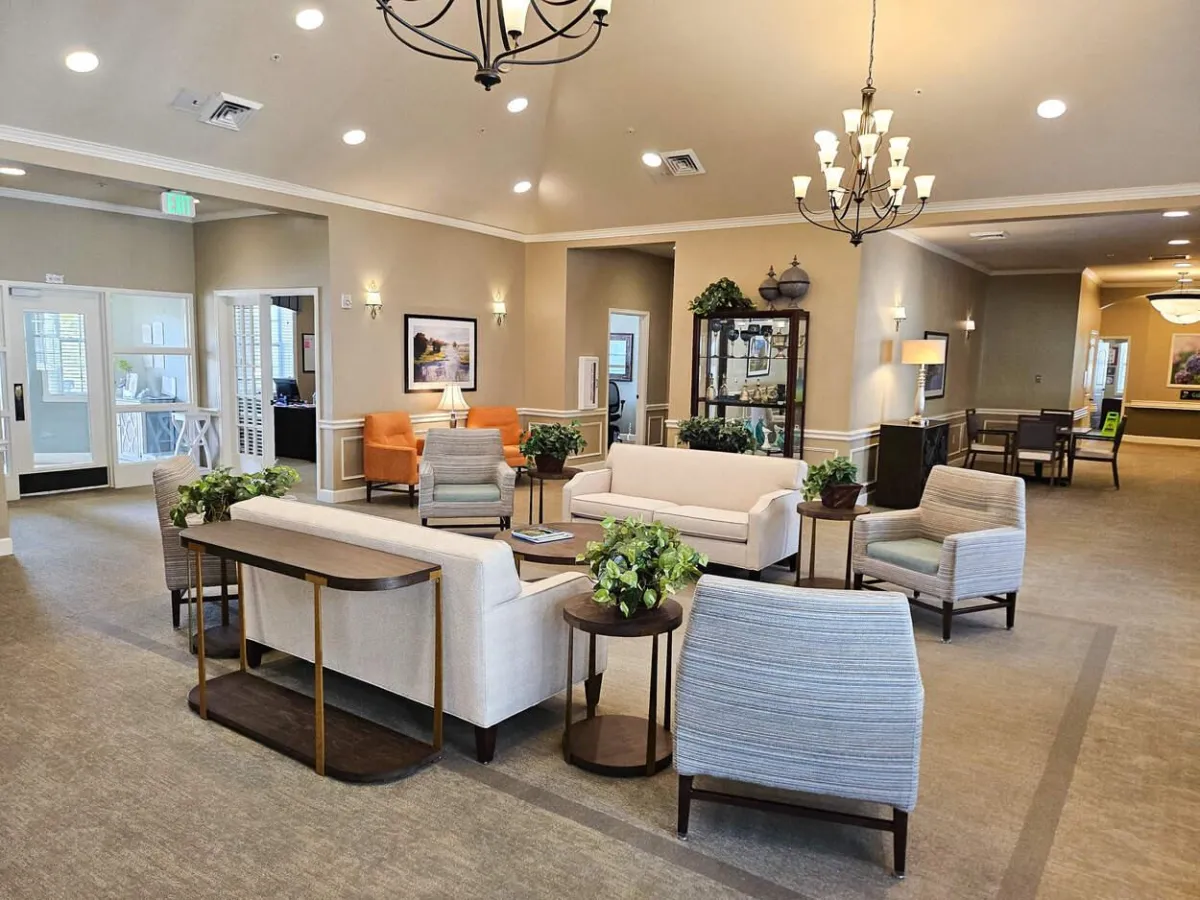
Are You Ready To Get Settled In?
Embark on a transformative experience at Gulf Coast Memory Care in Estero, Florida. We're not just a memory care community; we're a sanctuary where the mind, body, and spirit are nurtured. If you're seeking a place where compassion, care, and a deep respect for the human soul are paramount, you've found the right haven.

From Correction to Connection: How To Communicate With Loved Ones With Memory Loss
Communicating with a loved one who has memory loss can be emotionally exhausting. What used to be simple conversations now involve repeated questions, forgotten names, and emotional confusion. Many families try to help by correcting the person, reminding them of the facts, or pointing out what’s “real.” But correction rarely works. It can make things worse.
The goal isn’t to win an argument or bring someone “back to reality.” It’s to maintain connection, reduce frustration, and build trust. This shift from correction to connection is the foundation of better dementia communication.
Why Traditional Communication Breaks Down
Memory loss affects more than just memory. It impacts how a person processes language, recognizes tone, and interprets intent. When someone with dementia asks, “Where’s my mom?” they may be experiencing a real emotional need, not testing your memory.
Correcting them with, “Your mom passed away years ago,” can cause grief, fear, or anger every single time it’s repeated. These responses often increase confusion, break emotional trust, and escalate distress.
To improve communication, it’s essential to let go of the need to correct and instead respond in ways that create safety and understanding.
Shifting from Correction to Compassion
Effective communication with someone experiencing memory loss isn’t about teaching; it’s about meeting them where they are. Here’s what works:
Stay present and calm: Even when answers are repeated.
Respond to feelings, not just words: Someone asking for a parent may be expressing fear or needing comfort.
Prioritize emotional connection: Do this as opposed to obsessing over factual accuracy.
Accept repetition and confusion: Remember, these are symptoms, not choices.
This shift reduces frustration for everyone involved and makes communication more effective.
Practical Communication Tips
Here are specific memory loss care tips that families can use right away:
Use simple, direct language. Speak in short sentences. Avoid multiple ideas at once.
Maintain eye contact and use gentle, relaxed body language.
Ask yes/no or either/or questions instead of open-ended ones.
Repeat or rephrase as needed, without saying “I already told you.”
Use visual reminders like photos, labeled drawers, or written notes to support recall.
Redirect rather than argue. If someone insists it’s time to go to work, try: “What did you love most about your job?” instead of “You’ve been retired for years.”
These methods protect dignity and keep the conversation focused on connection.
The Role of the Environment
How and where you communicate also matters. A calm, distraction-free environment can make a major difference. Here’s how to set the stage:
Turn off TVs or background noise.
Sit at eye level.
Speak slowly and clearly without raising your voice.
Watch for signs of fatigue or overwhelm and take breaks if needed.
Use music, gentle touch, or familiar objects to create comfort.
The goal is to reduce overstimulation and allow the person to focus fully on the conversation.
Common Situations and Better Responses
Understanding what not to say is just as important as knowing what works. Here are some real-life examples:
Situation: “I need to pick up the kids from school.”
Avoid: “You don’t have kids at home anymore.”
Try: “You’ve always taken great care of your family. What were your kids like when they were little?”
Situation: “I want to go home now.”
Avoid: “You are home. You’ve lived here for years.”
Try: “Tell me about your home. What did it look like?” or “Let’s sit together a while, then we’ll figure out what to do.”
Situation: Repeating the same question every few minutes
Avoid: “You keep asking me the same thing.”
Try: “That’s a good question. Let me tell you again.”
These answers shift the conversation away from correction and toward validation, keeping the person calm and connected.
When It’s Time to Ask for Help
When communication becomes overwhelming or starts affecting the person’s well-being, or your own, it may be time to look for support. Memory loss can reach a point where professional care becomes essential.
At Gulf Coast Memory Care, every team member is trained in dementia-specific communication. This includes nonverbal techniques, validation strategies, and redirecting conversations without triggering distress. We create a predictable environment where residents feel understood, not corrected.
For families, that means less stress, more peace of mind, and the comfort of knowing your loved one is being supported in ways that protect their dignity.
Communication Is Ongoing
There’s no one-size-fits-all approach to dementia communication. What works today may not work tomorrow. That’s why the key is flexibility, empathy, and presence. When you stop trying to fix or correct and start trying to connect, everything changes.
Even in the face of memory loss, meaningful interaction is still possible. Your words and how you say them can bring calm, joy, and connection, even in the most difficult moments.
Final Thoughts
Improving dementia communication doesn’t require specialized training. It just takes the willingness to shift from being “right” to being present. These small changes, how we listen, how we respond, how we redirect, can make a big difference.
If you’re looking for more personalized support, Gulf Coast Memory Care offers expert guidance and a team trained in compassionate, connection-focused dementia care. Contact us today to learn more.

From Correction to Connection: How To Communicate With Loved Ones With Memory Loss
Communicating with a loved one who has memory loss can be emotionally exhausting. What used to be simple conversations now involve repeated questions, forgotten names, and emotional confusion. Many families try to help by correcting the person, reminding them of the facts, or pointing out what’s “real.” But correction rarely works. It can make things worse.
The goal isn’t to win an argument or bring someone “back to reality.” It’s to maintain connection, reduce frustration, and build trust. This shift from correction to connection is the foundation of better dementia communication.
Why Traditional Communication Breaks Down
Memory loss affects more than just memory. It impacts how a person processes language, recognizes tone, and interprets intent. When someone with dementia asks, “Where’s my mom?” they may be experiencing a real emotional need, not testing your memory.
Correcting them with, “Your mom passed away years ago,” can cause grief, fear, or anger every single time it’s repeated. These responses often increase confusion, break emotional trust, and escalate distress.
To improve communication, it’s essential to let go of the need to correct and instead respond in ways that create safety and understanding.
Shifting from Correction to Compassion
Effective communication with someone experiencing memory loss isn’t about teaching; it’s about meeting them where they are. Here’s what works:
Stay present and calm: Even when answers are repeated.
Respond to feelings, not just words: Someone asking for a parent may be expressing fear or needing comfort.
Prioritize emotional connection: Do this as opposed to obsessing over factual accuracy.
Accept repetition and confusion: Remember, these are symptoms, not choices.
This shift reduces frustration for everyone involved and makes communication more effective.
Practical Communication Tips
Here are specific memory loss care tips that families can use right away:
Use simple, direct language. Speak in short sentences. Avoid multiple ideas at once.
Maintain eye contact and use gentle, relaxed body language.
Ask yes/no or either/or questions instead of open-ended ones.
Repeat or rephrase as needed, without saying “I already told you.”
Use visual reminders like photos, labeled drawers, or written notes to support recall.
Redirect rather than argue. If someone insists it’s time to go to work, try: “What did you love most about your job?” instead of “You’ve been retired for years.”
These methods protect dignity and keep the conversation focused on connection.
The Role of the Environment
How and where you communicate also matters. A calm, distraction-free environment can make a major difference. Here’s how to set the stage:
Turn off TVs or background noise.
Sit at eye level.
Speak slowly and clearly without raising your voice.
Watch for signs of fatigue or overwhelm and take breaks if needed.
Use music, gentle touch, or familiar objects to create comfort.
The goal is to reduce overstimulation and allow the person to focus fully on the conversation.
Common Situations and Better Responses
Understanding what not to say is just as important as knowing what works. Here are some real-life examples:
Situation: “I need to pick up the kids from school.”
Avoid: “You don’t have kids at home anymore.”
Try: “You’ve always taken great care of your family. What were your kids like when they were little?”
Situation: “I want to go home now.”
Avoid: “You are home. You’ve lived here for years.”
Try: “Tell me about your home. What did it look like?” or “Let’s sit together a while, then we’ll figure out what to do.”
Situation: Repeating the same question every few minutes
Avoid: “You keep asking me the same thing.”
Try: “That’s a good question. Let me tell you again.”
These answers shift the conversation away from correction and toward validation, keeping the person calm and connected.
When It’s Time to Ask for Help
When communication becomes overwhelming or starts affecting the person’s well-being, or your own, it may be time to look for support. Memory loss can reach a point where professional care becomes essential.
At Gulf Coast Memory Care, every team member is trained in dementia-specific communication. This includes nonverbal techniques, validation strategies, and redirecting conversations without triggering distress. We create a predictable environment where residents feel understood, not corrected.
For families, that means less stress, more peace of mind, and the comfort of knowing your loved one is being supported in ways that protect their dignity.
Communication Is Ongoing
There’s no one-size-fits-all approach to dementia communication. What works today may not work tomorrow. That’s why the key is flexibility, empathy, and presence. When you stop trying to fix or correct and start trying to connect, everything changes.
Even in the face of memory loss, meaningful interaction is still possible. Your words and how you say them can bring calm, joy, and connection, even in the most difficult moments.
Final Thoughts
Improving dementia communication doesn’t require specialized training. It just takes the willingness to shift from being “right” to being present. These small changes, how we listen, how we respond, how we redirect, can make a big difference.
If you’re looking for more personalized support, Gulf Coast Memory Care offers expert guidance and a team trained in compassionate, connection-focused dementia care. Contact us today to learn more.
Come Visit Us
We can't wait to hear from you! Fill out our contact form to get started or if you would like to see our community for yourself, schedule a tour here.
Gulf Coast Memory Care
(239) 221-6120
22900 Lyden Dr, Estero, FL 33928
AL# 12921
Privacy Policy | Accessibility Statement | Visitation Policy

